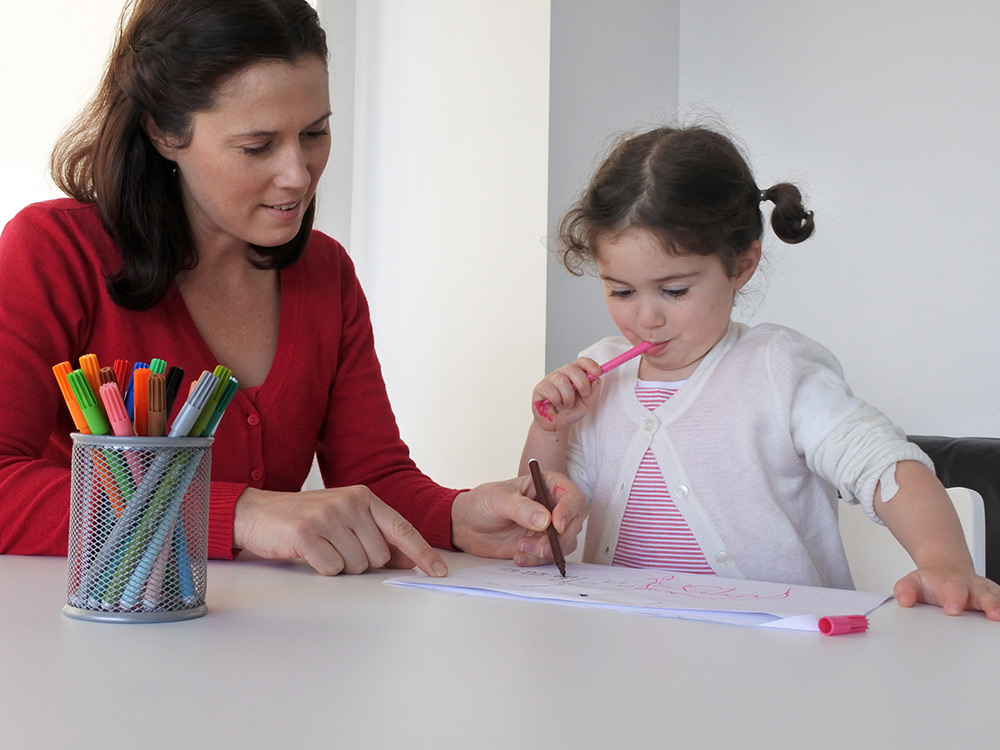Cognitive learning is a learning method that emphasizes the active participation of learners and their involvement in the process of assimilating knowledge . In this article, we will introduce you to the keys to cognitive learning for high school students , as well as tips and techniques for parents who want to help their teenagers excel in their studies.

Main conclusions
- Cognitive learning promotes the active participation of high school students in the learning process.
- Parents can play an important role in supporting their children in their cognitive learning
- Techniques such as note-taking and memory exercises can improve cognitive learning in high school students .
- Cognitive learning can be beneficial for the development of cognitive abilities in high school students.
- Cognitive learning can be applied to other fields,uch as management and professional development
What is cognitive learning?
Cognitive learning refers to a mental process used consciously or unconsciously by individuals to understand their environment. It is based on finding solutions and implementing appropriate behaviors to achieve goals.
This learning method exploits the mental faculties of learners, as well as the knowledge already acquired, by emphasizing knowledge assimilation strategies .
Cognitive learning is aided by the repetition of information and natural anchor points in individuals’ memory .
Key principles of cognitive learning include
- Active participation of learners in their warning
- The use of thinking and reasoning techniques to solve problems.
- Creating associations of ideas to facilitate understanding and memorization.
- The implementation of knowledge assimilation strategies, such as note-taking and reformulating information.
The importance of cognitive learning
Cognitive learning plays a vital role in the intellectual and academic development of individuals. By utilizing the principles of cognitive learning, learners can improve their ability to understand, analyze, and retain information. This approach also promotes the development of critical thinking and problem-solving skills, which are essential in many areas of life.
By emphasizing active learner participation, cognitive learning also encourages autonomy and responsibility in the learning process . Learners become active agents in their own education , which promotes deeper engagement and increased motivation.
The benefits of cognitive learning
Cognitive learning offers many benefits to learners. By developing metacognitive skills and using knowledge assimilation strategies, learners can improve their ability to learn effectively and efficiently. This can result in better academic performance, greater seself-confidenceand, and better preparation for future challenges.
In addition, cognitive learning also promotes the development of cognitive abilities , such as memory , attention, and critical thinking. These skills are essential in all aspects of life, both academically and professionally.
Theoretical foundations of cognitive learning
Cognitive learning is based on the theoretical foundations of pedagogy and psychosociology. These disciplines have contributed to the development of an approach centered on cognition and the experience of learners. Pedagogy, articularly that of Célestin Freinet, challenges the traditional model of authority and emphasizes student autonomy. Psychosociology,w ith figures such as Abraham Maslow and Carl Rogers, emphasizes the importance of motivation and the relationship between teacher and learner.
Cognitive learning also incorporates the concept of experiential learning. This method recognizes that learners actively construct their knowledge by interacting with their environment. By experiencing and reflecting on their experiences, they develop their understanding and skills. This approach fosters learner engagement and participation, encouraging them to apply their knowledge in real-life situations.
By combining these theoretical foundations, cognitive apprenticeship offers a comprehensive learning framework that takes into account learners’ needs, motivations, and abilities. By understanding how cognitive processes work and using appropriate instructional strategies, teachers can create stimulating learning environments and promote student success.
Techniques to promote cognitive learning in middle school students
Middle school students can benefit from a variety of techniques to enhance their cognitive learning . ere are some strategies that can help them strengthen their abilities:
- Note-taking: Encourage your child to take notes during class to aid in the absorption of information. This will help them focus on key points and express concepts in their own words.
- Cognitive strengthening: EEncourageyour child to do memory and concentration exercises to strengthen their cognitive abilities . Ths may include memory games, puzzles, or thinking activities.
- Using mnemonic techniques: Teach your child different mnemonic techniques, such as creating associations of ideas, acronyms, or mental images. These techniques can help facilitate the memorization and assimilation of information.
By using these techniques, you can help your child develop cognitive skills and improve their learning. Remember to encourage them and provide an environment conducive to study and concentration.
Keys to promoting cognitive learning in middle school students
- Encourage your child to be active in their learning by asking questions, participating in class discussions, and completing hands-on projects.
- Create a quiet, distraction-free study environment with a well-organized workspace and school materials within easy reach.
- Be there to support and encourage your child in their learning journey, offering praise and rewards for their efforts.
With these keys and techniques, you can help your child optimize their cognitive learning in middle school and achieve their full academic potential.
Parental involvement in their children’s cognitive learning
Parents have an important role to play in their children’s cognitive development. As parents, you can use various techniques to support and foster the development of your children’s cognitive abilities. Here are some practical tips :
- Encourage learning at home: Create a conducive learning environment by providing appropriate educational resources. Encourage your children to read, ask questions, and explore new topics. Show interest in their studies and discuss the topics they are studying with them.
- Foster open communication Create a space where your children feel comfortable talking to you about their concerns, challenges, and successes. Actively listen to them and show them your support. Open communication promotes self-esteem and confidence, which are essential for learning.
- Use appropriate teaching techniques: Learn about different learning methods and discover what works best for your children. Every child is unique, so it’s important to adapt your approach to their needs and learning style. Be patient and encourage them to take inthe itiative in their learning.
Your involvement as a parent can have a significant impact on your children’s cognitive learning. By using these techniques, you can help your children develop their cognitive abilities and excel in their studies.
In short, by demonstrating encouragement, open communication, and using appropriate educational techniques, you can effectively support your children’s cognitive learning. Be present, attentive, and involved in their educational journey, and you will help them develop their cognitive abilities and reach their full potential.
Cognitive learning in middle school
Cognitive learning can be beneficial as early as middle school . By using teaching methods that encourage active student participation and understanding of concepts, teachers can help students develop their cognitive skills.








